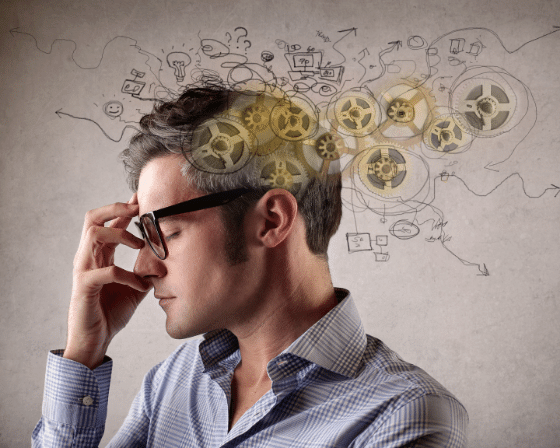03/03/2021 / Mental Health and Wellness
Mental Health and Psychiatry: Disorders and Treatment
Mental Health is not just the absence of mental disorders; it is more than that. Health is a state of complete physical, mental and social well-being and not merely the absence of disease.

Table of Content
Introduction
For all human beings, the traits of complete health reside in physical, social, and mental well-being. The importance of mental health for an individual, society, or country as a whole becomes even more crucial when we began to understand the relationship between these three states of wellness. But, it is very unfortunate to know that the world does not take mental health as seriously or important as physical health. Mental health or mental health disorders are constantly being neglected all over the globe.
It’s been a long time since we are facing discrimination against mental health and are trying to hide it as if it does not occur. The suffering and burden of a mentally disabled person are increasing at an alarming rate. Now is the time to talk about it openly and find solutions or treatments.
What is Mental Health?
Definition: Mental health is defined as a state of well-being enabling individuals to realize their abilities, cope with the normal stresses of life, work productively, and make a contribution to their communities.
Mental health is not just the absence of mental disorders, it is more than that. The WHO’s definition of health contains mental health as the main constituent which states ‘Health is a state of complete physical, mental and social well-being and not merely the absence of disease.”
Mental health is about making a person or a whole community competent so that they can conquer their dreams, desires, and goals. Mental health is a big concern for everyone around the world and not just a community or individual suffering from a mental disorder. The problem associated with mental health affects the whole society and therefore, becomes a major challenge for the overall growth and development.
Global Burden of Mental Disorders
Today, 950 million people all over the world are suffering from mental health disorders. Amongst them, anxiety is the most common mental disorder affecting around 284 million people. Apart from that:
At a given point time, around 150 million people are suffering from depression.
Every year, around 1 million people commit suicide.
The toll for schizophrenia reaches 25 million people.
Thirty-eight million individuals are suffering from epilepsy.
About 90 million individuals are suffering from drug or alcohol abuse disorder.

Interrelationship of Mental Illness with Other Diseases
Mental health is no doubt linked with physical wellbeing and social functioning. For instance, depression is proven to be a possible cause of heart ailments and cancer. Patients with common mental disorders such as anxiety, depression, and drug addiction along with other physical disorders show poor recovery rates and failure to stick to their treatment regime. Thus, a wide range of behavioral changes like smoking or unsafe sexual activities is associated with the onset of various physical disorders such as HIV/AIDS and cancer. The World Health Report identifies the mental/behavioral changes (drug addiction, tobacco use, alcohol use, unsafe sexual activities) as a leading cause of other physical disorders such as overweight, hypertension, and high cholesterol. Comorbid depression is the existence of a depressive disorder (i.e. dysthymia, major depression, or adjustment disorder) along with a physical disease (cardiovascular diseases, infections, diabetes mellitus, neurological disorders, or cancer).
3 Common Mental Disorders
The most common types of mental disorders include anxiety disorders, schizophrenia disorders, and mood disorders.
1. Anxiety disorders: This is the most common mental disorder. People suffering from anxiety disorders have excessive anxiety or fear for any specific object or situation. The anxiety disorder patients try to avoid the thing that triggers their anxiety.
2. Schizophrenia disorders: It is a complex condition in which the patient has distorted thinking, sense of self, language, perception, behavior, and emotions. Schizophrenic patients find it hard to process even the simplest information.
3. Mood disorders: Mood disorder is also called a depressive disorder or affective disorder. People suffering from this disorder experience a sudden change in their mood which can either be depressive or hyperactive in nature.

Signs and Symptoms of Mental Disorders
Although there is no authentic test to detect mental illness in an individual, certain possible signs are found in patients suffering from it. These are sleeping too much or too little (Insomnia), staying alone, avoiding enjoyable activities, eating too much or too little, feeling hopeless, indulging in alcohol or drugs to change the mood, having low energy all the time, being in a state of confusion, unable to do the normal day-to-day task, thinking of causing physical harm to others or themselves, having delusions or hearing voices, etc.
Treatment
The treatment for mental health problems is highly specific and changes from person to person. What works for one patient may not work for another patient suffering from the same disorder. The treatments or strategies are usually employed in combination to treat mental illness.
The patients must work closely with a psychiatrist to identify their problems and start a suitable treatment.
Treatment may include talking therapies or psychotherapies which is a psychological approach to treat mental disorders.
Examples of this type of treatment include exposure therapy, cognitive behavior therapy, and dialectical behavior therapy, carried out by mental health experts like psychotherapists, psychiatrists, and psychologists.
These therapies help the patient to understand the root cause of his/her illness and reduce the risk of self-harm, isolation, or suicidal thoughts.
Some medications such as antipsychotic drugs, antidepressants, and anxiolytic drugs are also prescribed by doctors for such patients.
Although these drugs cannot cure mental illness they may help in relieving the symptoms and resuming the normal everyday functioning of the individual.
Comments ( 0 )
No Comments
Leave a Comment
Health & Wellness Tips
Subscribe to our blog